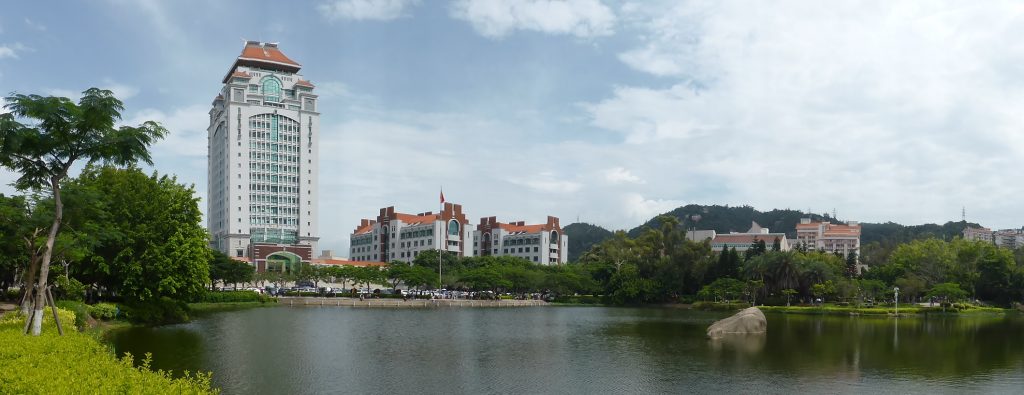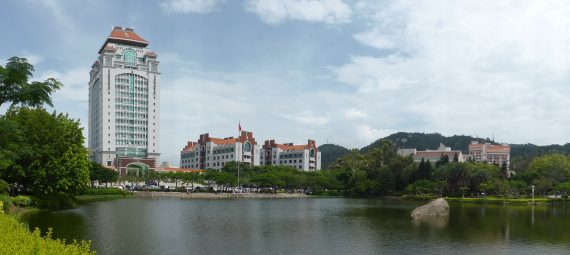I decided to attend the Xiamen Summer School because the city of Xiamen (厦门) and Xiamen University (厦大) are often held in the highest regard by Chinese students. The programme combined academic learning and cultural understanding with economics lectures and social activities. We were able to visit landmarks and other cities in the Fujian Province – this included the historical maritime city of Quanzhou (泉州) and UNESCO World Heritage Sites: Qulangyu Island (鼓浪屿) and Fujian Tulou (福建土楼).

Our lectures at Xiamen University were normally around one and a half hours long – much longer than our usual 45 minute lectures at Southampton! I would like to offer an insight into the lecture on “Labour Economics and China’s Growth Prospects” by Professor Lei Meng.
The Chinese labour market is often regarded as one of the key contributors to the success of economic reforms in China. Following the Chinese economic reform (改革开放 or “reform and opening-up”) in 1978, China has averaged and sustained a GDP growth rate of at least 6% between 1991 and 2017. Professor Meng highlighted that rising wages may offset China’s comparative advantage in the production of labour-intensive outputs and hinder economic growth. Furthermore, there have been ongoing concerns over labour shortages in coastal regions, such as Shanghai.
The theories behind rising wages in China include:
Neoclassical view of economic development & wage growth (Demand Side)
Increasing labour demand in inland areas of China has led to an increase in wages. This is shown by the figure above as an increase in labour demand leads to an increase in the wage rate and quantity of labour.
Lewis Turning Point (Supply Side)
Decreasing labour supply has been caused by an ageing population (higher dependency ratio) and the depletion of low skilled labour. However, current demographics forecasts were based on weighted averages and under the influence of the one-child policy. China has since scraped the one-child policy in favour of the two-child policy and this will undoubtedly change the population dynamics of China in the near future.
Unintended consequence of government policy
The Chinese government has been advocating the development of specific industries and certain areas. This has resulted in rising wages across sectors and geographies in China. Therefore, changes to government policy may also influence wage rates across China.
Effective policy recommendation requires the full understanding of the causation. Thus, labour economics remains crucial to policy recommendation and maintaining China’s global competitiveness. Professor Meng advocates that a better understanding of the Chinese labour market can vastly improve China’s growth prospects and living standards.
My participation would not have been possible without the support from the Southampton Opportunity Scholarship and the exchange partnership between the University of Southampton and Xiamen University. I would also like to thank the International Partnerships Office at the University of Southampton, the School of Economics at Xiamen University and the SOE/WISE volunteers for their generous hospitality and assistance.
The different practices of teaching and the chance to meet students at Xiamen University have been invaluable to my professional and personal development. The Xiamen Summer School experience was the perfect ending to my three years as an economics undergraduate at the University of Southampton.
再見 // Bye
Yu-Ching


Is there any summer school program for children age 8 and 10 in June? Learning Chinese language